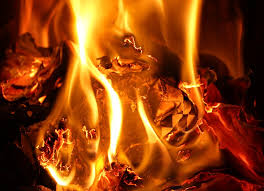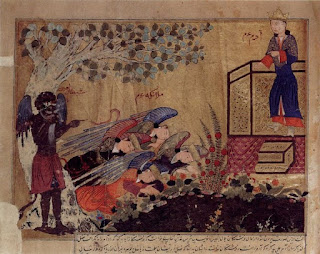1. One of the first ideas that came to mind was to tell the story of Dante traversing through Hell's circles from the point of view of Lucifer. In the original story we don't see an interaction between Dante and Lucifer really. Most of Dante's experience of Hell is passive, but what if we changed it to an active experience? Perhaps Dante only thinks he's touring Hell when in reality he belongs there and Lucifer tries to actively keep him from escaping.
2. My next story line idea requires Dante to take an active role. The plot for this would be something along the lines of Dante searching for someone in particular to save from Hell while he encounters other people he knew in his lifetime along the way. Dante has to battle through different circles of Hell to save a friend after he wakes up one day in one of the circles of Hell. I'm not sure if this rendition would include the presence of Virgil, his guide in the original story, or if he would discover his way through his interactions with the people he meets.
3. This third idea is still a little shaky. In this rendition I have Dante traveling through Hell and gaining knowledge about each circle from Virgil who guides him. As they walk through Virgil tells of the legend of how a worthy soul would one day come to shepherd righteous souls, that happened to become lost in Hell, to a gateway that they could pass through that would bring them to Heaven. By the end of Dante's journey through Hell he would come to realize that Virgil was preparing him to take on this task, and he becomes the shepherd for the good souls as Virgil rises up to Heaven. I feel like this story may need some more appearances of divine power to hint at the righteousness within Dante's own soul. Or maybe throughout his tour he overcomes some inner evil and develops a more righteous soul that allows him to take this position in Hell but because of his sin he is not allowed into Heaven for a certain period of time.
 |
| A depiction of the different circles of Hell. An engraving by J. Wierix found on wikimedia. |
Bibliography



